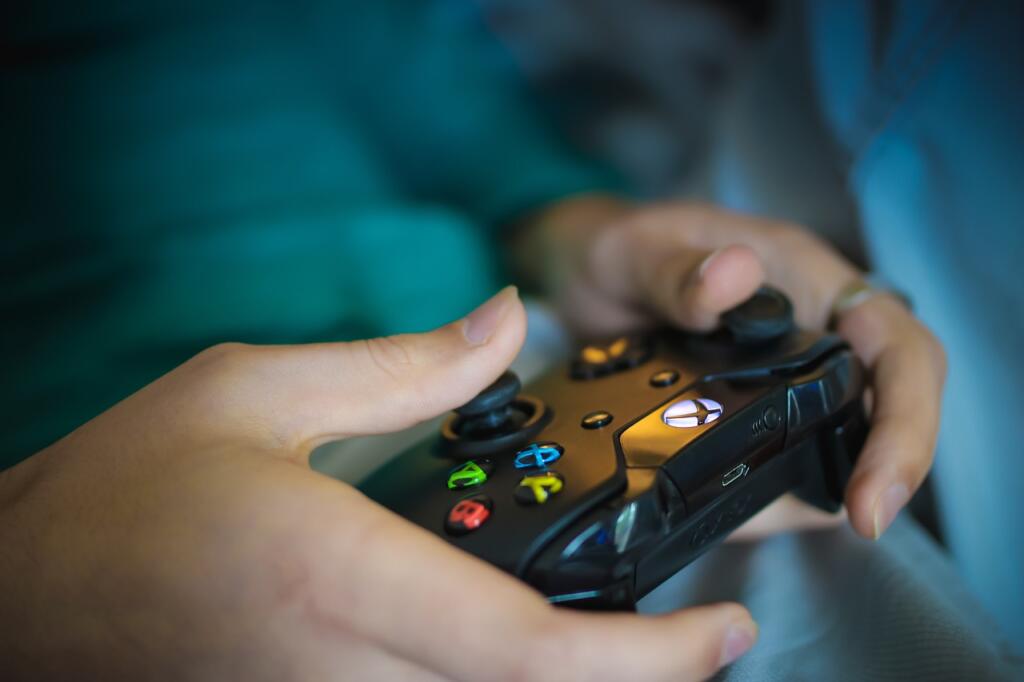Earlier in March this year, a Spanish gaming startup, Elixir Games, raised $14 million to build a decentralised gaming ecosystem. Around the same time, the UK-based BlockGames raised $6 million for its decentralised gaming investment. Later in June this year, multiplayer gaming tech platform MetaGravity joined hands with decentralised cloud infrastructure provider Aethir. These are some of the many examples that indicate that decentralised gaming is going to be the next big phenomenon in the gaming industry.
Similar developments are being made in almost all other popular gaming categories. And not just gamers; developers are just as excited with decentralised gaming. It empowers gaming by harnessing the benefits of blockchain technology and all the interesting features that it offers.
The Emergence of Decentralised Gaming
Decentralised gaming uses blockchain technology, that helps developers build the game on distributed ledger technology. Blockchain ensures the security and transparency in the game, as the mechanics of the game and its assets are stored in blockchain.
Blockchain is often associated with the rise of cryptocurrencies, which were valued at over $3 trillion at its peak. However, many industries have benefited from blockchain technology, and gaming is no exception. Decentralised gaming is the latest in this long line of blockchain-induced innovations.
This gaming market is estimated to grow at an astounding CAGR of around 70% between 2022 and 2027. By the end of 2027, the market could reach over $70 billion globally.
Why and How Decentralised Gaming is Attracting Interest?
It must be remembered that decentralised gaming is not owned or controlled by any single entity, which makes it more player-driven.
The safety and security of decentralised games is its topmost advantage. The game data is stored in a distributed ledger and protected by cryptography. The ledgers remain hosted in the blockchain network with its interconnected nodes. This not only adds safety but also privacy for the gamers.
Gamers have their personal information protected as they sign in with their crypto wallet or decentralised identifier. The game itself is played and updated at high speed. The instant validation system in decentralised gaming also eliminates cheating and fraud attempts.
The choice of ledger is important for the developer in ensuring these features, with the more reliable options coming at a higher price. This is why the development cost of a typical blockchain game can range between $30,000 to $150,000.
Being decentralised in nature, there is greater player participation in the game development and amendments. They can own in-game assets and items and have a say in important game development decisions.
It is fair to say that decentralised gaming offers a lot of features and advantages to the gaming community.
Gaming in the Decentralised Ecosystem
Non-Fungible Tokens (NFTs) are a key attraction in decentralised gaming. Gaming NFTs are enhancing the engagement levels among gamers and proving to be a lucrative market in itself. With a market size of $3.76 billion last year, the gaming NFT market value is expected to rise at 60% CAGR by 2032. With a market concentration of 30% in North America, there is ample room for it to expand across the rest of the world.
With the integration of NFT, decentralised gaming opens new opportunities for players to explore. They can win real rewards through their in-game achievements and activities. NFTs include various types of digital assets that are safely stored in blockchain. It can include in-game assets like characters and weapons, as well as collectables, trading cards, cryptocurrency tokens, virtual real estate and so on.
With decentralisation, your earnings when you play rummy on platforms like RummyTime would get stored on the blockchain. Even transacting them has become easy as well. The emergence of marketplaces like OpenSea and Rarible means gamers can now swap NFTs and own the ones they prefer.
As more and more gamers choose to own and trade these unique in-game items, decentralised gaming will grow in stature.
Overcoming the Challenges
Given its growth projections, soon you could be downloading a poker or rummy apk with decentralised features. However, decentralised gaming has to overcome a few teething challenges as well. The speed of many distributed ledgers has room for improvement, as do their pricing structures.
Besides, there are different blockchain networks in the world, and the interoperability of in-game NFTs among these networks must be further streamlined. One would also hope that the gamers are not intimidated by the technical demands of blockchain-based gaming, such as managing the crypto wallet and protecting passphrases.
Decentralising Entertainment
Challenges notwithstanding, decentralised gaming turns the table in terms of game experience, and that remains its unique USP. With many decentralised game developers involving gamers in decision-making, gamers would enjoy greater control. The greater control over the games and in-game assets is sweetening the deal even further. Besides, the safe and transparent blockchain ecosystem is already gaining recognition, further emboldening the future of decentralised gaming.
